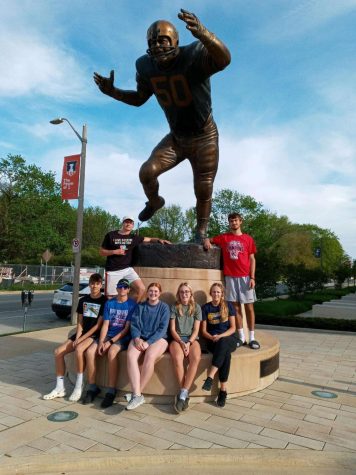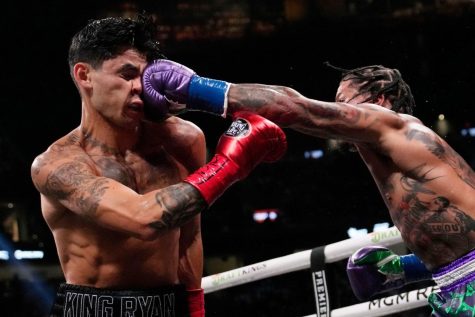Don’t Run From the Problem When Running is the Problem

The 2016 Rio Olympics caused an increased interest in the debate of transgender athletes competing in their preferred gendered sports. They made a very difficult and thoughtful decision. After long deliberation, the rule makers for the Olympics made the decision to allow such athletes to compete. This adjustment to the rules sparked outrage in some athletes and sports fans while provoking excitement during others. This hot topic has been the subject of many studies with the objective of determining the science behind the physical, mental, and emotional aspects of transgender athletes while also accommodating the social stereotypes and discrimination determining the very complex outcome of the issue. These very vast differences of opinion on each side mostly concern biological men that decide to transition to transgender women. These long and extensive studies have had different outcomes, forming differing opinions between many people while continuing not to be fully conclusive one way or the other (Rea). While efforts are being made to keep people holding both stances happy, policymakers are reluctant to choose one side or the other. Arguments for and against the idea of these transgender athletes competing in their preferred gender sports have caused great controversy in today’s sports.
To begin, those who argue in favor of transgender athletes competing in the sport and gender they choose generally follow a moral argument, trying to appeal to the emotions and empathy of the people they are trying to convince. Being physically and emotionally excluded can lead to transgender athletes feeling discriminated against and excluded by fellow athletes to worldwide organizations for their beliefs and feelings (Dawson). It is not uncommon for people to feel hurt when told they are not allowed to do something they love, especially when they know they are good enough to compete in sports (Rea). In the 1990s, many athletes and non-athletes felt as though they were unable to “come out” to their peers, with the fear that they would be physically and emotionally wounded and pushed away (Rankins). Thirty years of research underscore the disproportionately higher rates of depressive symptoms, substance use/abuse, suicidal ideation, and suicide attempts among queer-spectrum and trans-spectrum youth (Rankins). As a result of being constantly pushed away and pressured to stay silent, many young transgender athletes have the feeling that they are not as adequate as their biological counterparts.
Similarly, these young transgender athletes are not being shown that they can achieve great things. They are being told they are different and they must not compete because they are unfairly advantaged (Rea). This is the consequence of not having strong role models and other people pushing them to be their best (Rankins). As said by Daniel Breacher, “If more transgender athletes were allowed to compete – this would result in society being exposed to more transgender people in the media. This exposure would allow them to become more accepted and allow young transgender people to be inspired and participate in sports.” If young transgender athletes have no representation then how will they ever have the chance to feel as though they belong in our “all-inclusive society?” (Jaques). Everyone not only wants to be included but also deserves to be included. (Jaques).
To expand, all Americans should all have the same rights to compete in higher level events such as the Olympics or professional sports. If everyone is not included, it will likely cause many extremely avoidable consequences, such as depression or worse, which often befall people that feel totally excluded from their fellow peers or even their own family and friends (Jaques). Excluding transgender athletes from competing would not only have an effect on the transgender athletes, but also all of the athletes, biological females in particular (Jaques). By not having the best athletes competing, a message is sent that society does not believe transgender athletes are really equal and are even lower than other competitors because of choices these athletes felt they had to make. This can hinder the transgender athletes even more because they would feel like they are being labeled as “advantaged” and not “gifted” (Jaques).
On the other end of the spectrum for this argument, many believe that the physical science of gender does not lie or distort facts. As a whole, men are generally physically stronger, faster, and all-around more athletic than the average woman. The reason for the whole argument in the first place is that men and women are not evenly matched when it comes to their athletic abilities. For this reason, men’s sports competitions and women’s sports competitions are separated by gender. If men’s and women’s athletics were never separated, it is obvious what would happen. Women in sports would cease to exist. According to boysvswomen.com, in 2016, there were nine high school male athletes that had lower times than the women’s Olympic gold medalist’s fastest time at the 2016 Rio Olympics. The example and argument most commonly used to defend against transgender athletes taking over modern sports are that there are significantly higher levels of testosterone in men than there are in women. This, in turn, causes transgender females to have a much higher testosterone level in their body than biological females; this makes them stronger and faster. This could ruin the futures of many non-transgender athletes.
To reiterate what was said before, the future of many careers and opportunities to attain athletic scholarships to college is in jeopardy for many biological females. These biological females could have their lives changed permanently because they are not able to physically compete with biological men that have transitioned to transgender women. As written by Bianca Stanscu “Women’s sports were created to give girls a fair chance at competition. That includes fair victories and fair defeats.”. By making the decision to allow transgender athletes to compete in their preferred gender category, decision-makers are creating an unlevel playing field. If these transgender athletes do compete, our society is saying that the feelings of the transgender athletes are of much higher importance than those of the biological females who are less advantaged as an athlete.
Finally, it may be concluded that though great efforts are being made to keep supporters of both stances happy, arguments for and against the idea of these transgender athletes competing in their preferred gender sports have caused great controversy and discussions within the sports community and the entire nation. As the future of athletics unfolds, we will begin to see even more clarification from rules and lawmakers on whether or not transgender athletes will be able to compete. As the rules change or become more solidified, there could begin to be even more controversy between the two sides of the argument.
Works Cited
Dawson, Alan. “The biggest thing critics continually get wrong about transgender athletes competing in women’s sports.” Business Insider, 17 Apr. 2019, www.businessinsider.com/what-critics-get-wrong-about-transgender-athletes-in-womens-sports-2019-4. Accessed 12 Feb. 2021.
Jacques, Juliet. “Transgender Athletes Do Not Threaten Women’s Sports.” Newsweek, 20 Oct. 2020, www.newsweek.com/transgender-athletes-do-not-threaten-womens-sports-opinion-1540409. Accessed 12 Feb. 2021.
Rankins, Susan, and Genevieve Weber. “Mind, Body and Sport: Harassment and discrimination – LGBTQ student-athletes.” NCAA, www.ncaa.org/sport-science-institute/mind-body-and-sport-harassment-and-discrimination-lgbtq-student-athletes. Accessed 1 Mar. 2021.
Rea, Simon. “A level playing field.” OU Sport and Fitness Team Blog, 7 Feb. 2020, www.open.ac.uk/blogs/OU-Sport/?p=2304. Accessed 12 Feb. 2021.
Stanscu, Bianca. “Transgender athletes don’t belong in girls’ sports. Let my daughter compete fairly.” USA Today, 19 June 2020, www.usatoday.com/story/opinion/2020/06/19/transgender-athletes-robbing-girls-chance-win-sports-column/4856486002/. Accessed 12 Feb. 2021.





